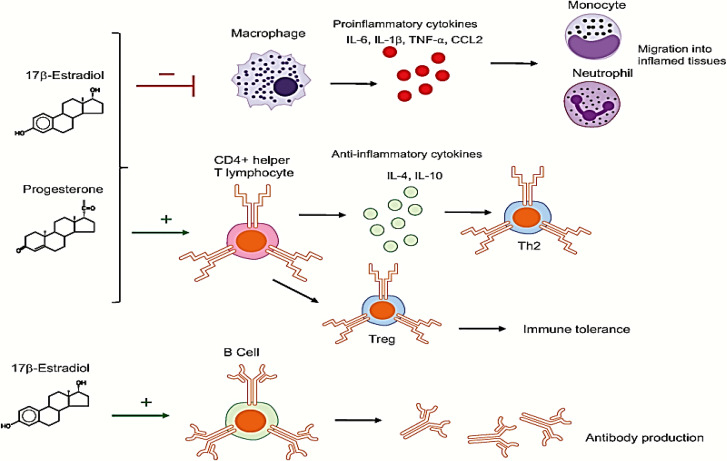Figure 1.
Steroid hormones and reshaping of immune cells
17β-estradiol (E2) in the high physiological concentration inhibits the pro-inflammatory cytokines by macrophages for production: interleukin 6 (IL-6), interleukin 1β (IL-1β), and tumor necrosis factor α (TNF-α), and chemokine CCL2, therefore blocking migration of neutrophils and monocytes into inflamed regions.
Progesterone (P4) suppresses pro-inflammatory cytokines production by macrophages and dendritic cells: interleukin 1β (IL-1β) and interleukin 12 (IL-12).
E2 or P4 in high concentration stimulate anti-inflammatory cytokines: CD4+ T-helper cell, interleukin 4, and interleukin 10 productions, and favor Th2-type anti-inflammatory responses. E2 and P4 also enhance the expansion of regulatory T cells (Treg), therefore promoting immune tolerance.
E2 stimulates B cells for production of antibody (1).

